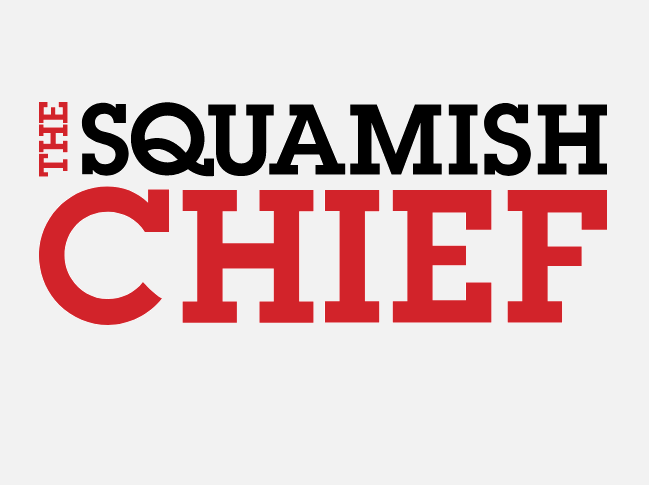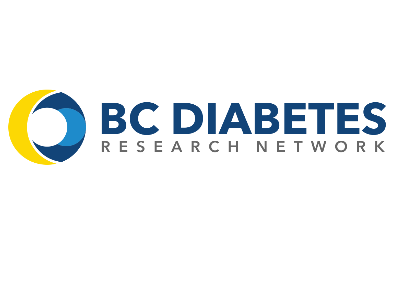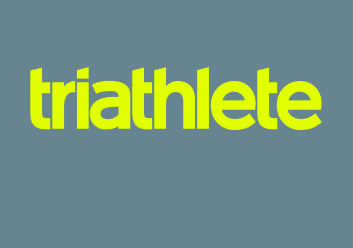
Yes, Your Sports Bra Really Can Restrict Your Breathing
The quest for adequate support can make running less efficient by forcing your breathing muscles to work harder, new research finds

What we can learn from elite athletes who adjust their workouts in poor air quality
Experts, including UBC School of Kinesiology’s, Dr. Michael Koehle, share advice on what we can learn from elite athletes who adjust their workouts in poor air quality.

Plantar Fasciitis is painful. Some people are treating it the wrong way.
“Daily stretching will help the plantar fascia tissue to heal” — Dr. Karim Khan on treating plantar fasciitis, a common reason for heel pain.

Is it safe to exercise outdoors when the air quality is bad?
Exercisers can take precautions to lower risk from poor air quality caused by wildfire smoke. Dr. Michael Koehle answers important questions to help you stay active and know when to move your workouts inside.

How to train (and compete) in dirty air, featuring Dr. Michael Koehle
Dr. Michael Koehle is featured in this insightful article about training in poor air quality.

Dr. Nicola Hodges on deliberate practice
Dr. Nicola Hodges explains how we distinguish “deliberate” practice from other forms of training, and why it’s important to player development on FIFA Training Centre.

Dr. Faulkner and Dr. Geirc’s interview on the CSEP podcast, Episodes 24 & 25
On this episode of the CSEP Podcast Dr. Madelaine Gierc, Dr. Guy Faulkner and Joseph Gibbons all sat down to discuss the importance of mental health and the role exercise professionals can play in assisting both their clients and colleagues in maintaining good mental health.

Men experience body image issues, too — and this actor says it’s time to talk about it
“I want society to stop putting that on people, and I want people to start … just having the difficult conversations about sex and aging and nudity and all the stuff that [as] dinnertime conversation makes people really nervous. I think it’s time to stop being nervous about it.”

Fitness: It’s time to get kids moving again
“According to Guy Faulkner, lead researcher and professor at the University of British Columbia’s school of kinesiology, there has been a small bounce-back in physical activity since the first year of the pandemic, but the amount of time kids spend in front of a screen continues to be a problem.”

Take 2 steps and call me in the morning: Exercise as a prescription for depression
“The study was conceived by Eli Puterman, an assistant professor at the School of Kinesiology at the University of British Columbia in Vancouver. Puterman says he was moved by surveys such as the poll done for Mental Health Research Canada in early 2020, which suggested anxiety levels had quadrupled and depression levels doubled during the pandemic.”
Click here to watch CBC’s related video.

Study unlocks the secrets to developing a regular workout habit
Mark Beauchamp, a professor of exercise and health psychology at the University of British Columbia, said previous research has highlighted the important role social structures play in people’s ability to stick with behavior changes. “It’s not just about starting a behavior. It’s about sticking with it, and social structures could boost that. When people feel socially connected to exercise, they are more likely to do it long-term.”

5 Sneaky Tricks for Enjoying Exercise After 50, Experts Say
“All of this together points to the power of social connections,” says lead study author and University of British Columbia Kinesiology professor Mark Beauchamp. “If you set the environment up so participants feel a sense of connection or belonging with these other people, then they’re more likely to stick with it.”

SAD plus COVID: A bit of light and a bit of exercise can make all the difference
“New research by Dr. Eli Puterman has found that at-home exercise through fitness apps is an effective tool in managing depression.”

Using exercise to combat depression
“We all know by now that exercise is obviously good for us, but a recent trial at UBC by Dr. Eli Puterman has shown that using those exercise apps reduced depression dramatically during the pandemic.”

Rainforest Trail Run reconnects Indigenous communities to the ‘holistic’ health of their culture
“It’s been a very stressful year for our Indigenous communities and a lot of trauma resurfacing. The trail run supports what we already know and do in our communities — being outside together in healthy ways.” Rosalin Miles, in her work as a UBC kinesiology professor, said there is an educational tendency within society to look at Indigenous communities for what they lack in terms of health.
“In fact, I think Indigenous communities are the leaders we should look to in terms of ‘holistic’ health as their members practise spiritual, emotional and mental health during physical activity.”

Squamish-founded organization building playground for Lytton First Nation
“We believe that playfulness helps with meditative thinking, problem-solving and it also brings family together. It is aligned with a lot of the community-based research that we do at UBC,” said Dr. Rosalin Miles.

Athletes pushing back against the sexualization of women in gymnastics
Two high profile stories of women pushing back against uniform requirements for sports have made headlines recently. Dr. Andrea Bundon, Assistant Professor, School of Kinesiology, UBC, talks about how the German gymnastics team and other athletes are pushing back against sexualization of women in gymnastics.

Stiff joints, grey hair: Pandemic-induced isolation, grief and anxiety aged you – but it’s not too late to reverse the effects
Over the long-term, they can be detrimental and are difficult to change, says health psychologist Eli Puterman, an associate professor at the University of British Columbia School of Kinesiology and Canada Research Chair in physical activity and health.

Fighting apathy, finding an exercise routine vital as pandemic drags on, researchers say
“For 20 years, Dr. Faulkner has studied the effect of exercise on well-being and happiness.
Now, in a pandemic with no known endpoint, he says exercise should be a tool to not only stay physically fit, but to bolster mental well-being.”

Is It Safe to Exercise if the Air Is Hazy With Wildfire Smoke?
“Surprisingly, there is not yet any evidence that, for a given duration, higher-intensity exercise is more harmful than lower-intensity exercise,” says Dr. Michael Koehle, the director of the Environmental Physiology Laboratory at the University of British Columbia.”

Canadians not getting enough light exercise during pandemic, UBC study finds
“Traditionally we’ve always focused on moderate-to-vigorous physical activity, but more recent evidence shows that light physical activity can have some of the same benefits to physical and mental health,” said Katie Di Sebastiano, a postdoctoral fellow in Kinesiology, and lead author of the study.”

Consistency is key to adopting new fitness routines during pandemic, researchers say
“In the spring, both Rhodes and Guy Faulkner from the University of British Columbia worked on different studies looking at how Canadians were exercising during the initial response to the pandemic, which included the shutdown of gyms and recreation centres.”

Maria Gallo: A fearless ambassador for the women’s game
“As a mother of a young child and a full-time associate professor of teaching in the School of Kinesiology at the University of British Columbia, Gallo’s time is precious, but she says rugby and coaching will always be a part of her life.”

What is rhabdomyolysis? What to know about the rare ‘leaky muscle’ syndrome
“That (protein) carries oxygen within your muscle, and that’s cleared by your kidney,” said Cameron Mitchell, assistant professor of Kinesiology at the University of British Columbia.”

Physical activity should be part of pandemic guidelines, B.C. researchers say
“Light physical activity—which might include walking from transit to the office, for example—remained depressed after six weeks,” said Katie Di Sebastiano, a postdoctoral fellow in Kinesiology and lead author of the study, in a news release.”

UBC study looks at impact of exercise classes on seniors isolating during COVID-19
“The goal is to determine whether participating in the exercise classes has a positive impact on the mental health of seniors who are staying at home because of the coronavirus, said Mark Beauchamp, a professor of exercise and health psychology at UBC and the lead researcher on the project.”

UBC study shows negative thinking, divorce, financial difficulties increase risk of death
“We have to think bigger. We have to think that there are more factors that are all interacting with one another, probably shaping our mortality from early childhood all the way through late adulthood.”

Home work: How the pandemic has reshaped our working lives
“Ditching your commute could have a diversity of physical consequences, depending on how you choose to use the extra time, according to Eli Puterman, a professor at UBC’s School of Kinesiology.”

Discrimination and divorce make you more likely to die early
“Biological factors play an important role in our health, says Dr. Eli Puterman, but non-biological factors – our behaviours and life experiences – have an effect too.”

UBC study seeks to learn if at-home workout apps improve health during pandemic
“Dr. Eli Puterman: We’ll be randomizing people who are currently physically distancing and working from home to either yoga intervention, a high intensity interval training intervention, a combination of the two or a control group.”

Canada Now – Jeff Sammut With Mark Beauchamp
“Dr. Mark Beauchamp – Professor of Exercise and Health Psychology, UBC School of Kinesiology is studying how the pandemic is affecting exercise for seniors”
![]()
New study looks at how Pandemic affects senior fitness regimes
“A new study is looking at how the pandemic is affecting exercise for seniors.
Guest: Dr. Mark Beauchamp – Professor of Exercise and Health Psychology, UBC School of Kinesiology.”

UBC researcher to study link between exercise, mental health among older adults during pandemic
“Mark Beauchamp, a professor of exercise and health psychology, said he is looking for volunteers from across the country to participate. Beauchamp and a team of researchers are launching a study into the well-being of older people and examining their emotional state after they participate in physical exercise.”

Pandemic provides opportunity for studying impact of exercise on mental health
“Associate Professor Eli Puterman and Professor Mark Beauchamp of UBC’s School of Kinesiology research the connection between physical activity and mental health.”

Olympians Diane Jones-Konihowski & Evan Dunfee: Hearts Of Gold
“Olympians Diane Jones-Konihowski and Evan Dunfee are #InConversation with Ron MacLean. They discuss entering Canada’s Sports Hall of Fame, going from podium to 4th in Rio and life after sport.”

Class act: UBC first year student shops for seniors during the pandemic
“First-year UBC student Ava Katz has spent the past several weeks balancing the books and final exams with trying to help those most vulnerable in Vancouver.”

BC Diabetes Research Network Podcast: From Beta Cells to Bicycles
“Host Krista Lamb is joined by BC Diabetes Research Network researcher and UBC professor Dr. Robert Boushel, whose research focuses on the effects of exercise on diabetes and other metabolic syndromes.”

Tips for keeping your kids exercised during the pandemic
“Professor Mark Beauchamp speaks on CBC Radio’s The Early Edition.”

Keep working out and doing physical exercise while in isolation; fitness experts
“Guy Faulkner is a professor at the School of Kinesiology at UBC, he says to keep active or else many lose muscle mass.”

Careers That Matter: Doug Clement (former Olympian, health pioneer)
“In this episode of Careers That Matter, Dr. Doug Clement takes us inside his career – a career that is making a difference.”

How Childhood Trauma Can Cause Premature Aging
“The study—a collaboration between researchers in the U.S. and Canada, led by kinesiologist Dr. Eli Puterman of the University of British Columbia—drew its sample group from the 26,000 people already participating in the U.S. Health and Retirement Study (HRS), a bi-annual health survey of adults over 50 that began in 1992.”
The research has also been covered by CTV News.

Conversations That Matter: Rainforest Trail Run — a powerful antioxidant
“Dr Rosalin Miles, research associate in Indigenous Studies in Kinesiology thought, what better way to take a step towards better health and reconciliation than in a rainforest? Working with a wide range of health care and sports organizers and organizations, she launched the Rainforest Trail Run, a 5K event that celebrates First Nations cultures and promotes wellness through movement.”

How Exercise can Help Relieve Holiday Stress
“UBC Associate Professor of Kinesiology Eli Puterman explains how your body deals with stress and how exercise can help combat that. He explains why exercise is vital during times of stress.”

Exercise as medicine: UBC researcher unveils new tool to fight depression
“I saw them through the ups and downs of being hospitalized and then getting better and going back into the community and daily life,” said Krista Glowacki, UBC School of Kinesiology PhD candidate. “The healthiest — mentally and physically — I ever saw them is when they lived in B.C. and were hiking or running or walking every single day.”

Health matters: New film looks at decline in children “running free”
“Produced by Professor Guy Faulkner of the School of Kinesiology, Running Free
explores the concept of children’s independent mobility, the benefits for children’s mental health, and challenges viewers to consider solutions to this issue, premiered on September the 18th and was covered on Global News.

Why You Should Run When Stressed
“Eli Puterman, Ph.D., the lead researcher and a professor of kinesiology at the University of British Columbia, said that exercisers’ edge in this matter is probably a combination of reacting less severely as the stressor is happening and not remembering the stress as severe at the end of the day.”

Surfers off Canada’s West Coast face significant risks of concussions
“Many surfers don’t even realize they have a concussion because it’s not an injury associated with the sport, said Nikolaus Dean, a surf enthusiast, researcher and Kinesiology PhD student at the University of British Columbia. Mr. Dean studied the attitudes of Canadian surfers on concussions and found that although close to 60 per cent of the participants he interviewed had sustained one, they didn’t know how to properly diagnose or manage it.”

Virtue and Moir’s Rock the Rink tour not paying Special Olympics participants
“Andrea Bundon, an assistant professor of kinesiology at the University of British Columbia who researches disability in sport, is at work, with others, on a paper about the Special Olympics movement: “It is very, very hard, criticizing the Special Olympics,” she said, because of the meaningful and high-quality programs it provides. “They do work that no one else is doing.”

Are you shovelling the right way?
“Dr. Michael Koehle, a professor of sport and exercise medicine at The University of British Columbia, suggests layering clothing for warmth, “since cold muscles are more likely to get injured,” then removing layers as your body heats up.”

No, Huffing Pure Oxygen Won’t Make You Faster
“Hyperoxia means an increase in the amount of oxygen,” explains Dr. Michael Koehle, Director of Sport and Exercise Medicine at the University of British Columbia. “In this context, it means more oxygen than what is readily available in the surrounding air.”

Exercise as Medicine
“Don McKenzie, UBC School of Kinesiology Sports Medicine professor, exercise physiologist, says of exercise, “Physical activity has been overlooked and underutilized in the management of patients with cancer. Fortunately exercise is gaining some traction in the health care professions; physical activity should be standard of care.”

A lost Vienna emerges in Hanne Wassermann’s archive
“UBC kinesiology Prof. Patricia Vertinsky said Naktkultur translates as the “free-body movement.”
“She followed the basic system of Bess Mensendieck,” said Dr. Vertinsky, “(who) urged women to think scientifically about their bodies as machines of liberation.”